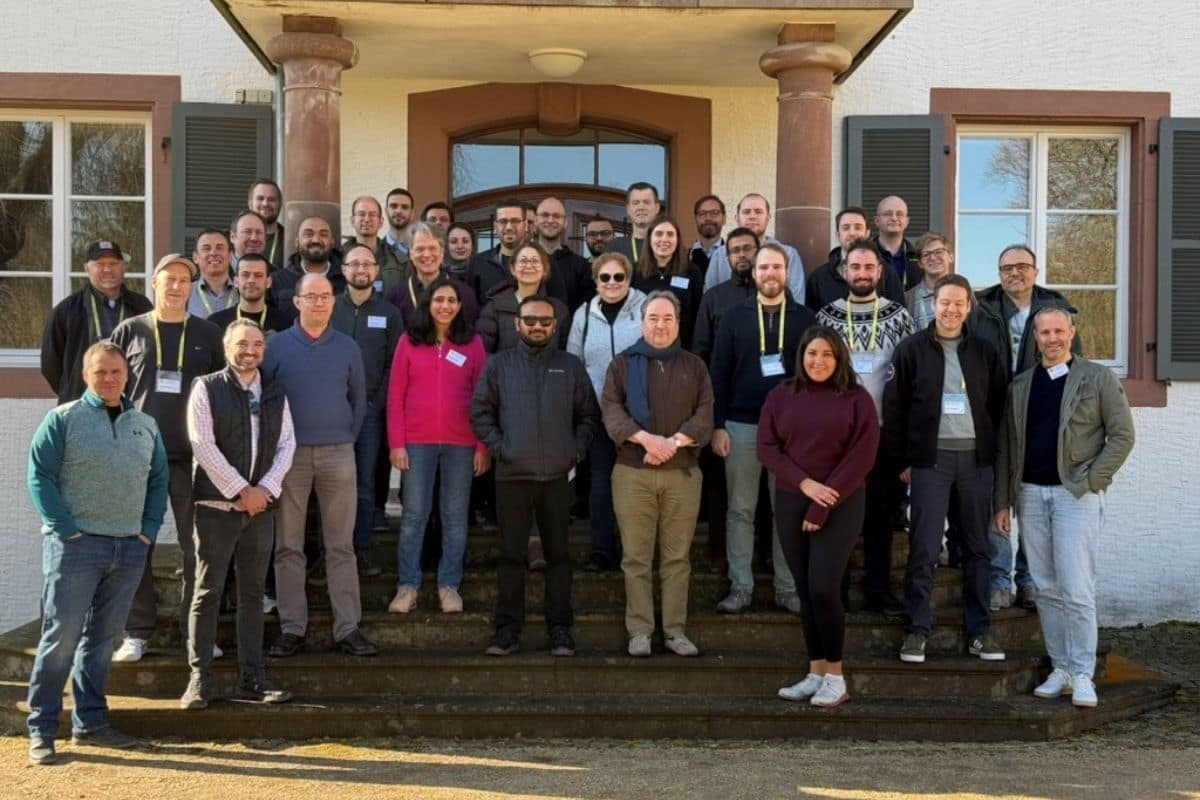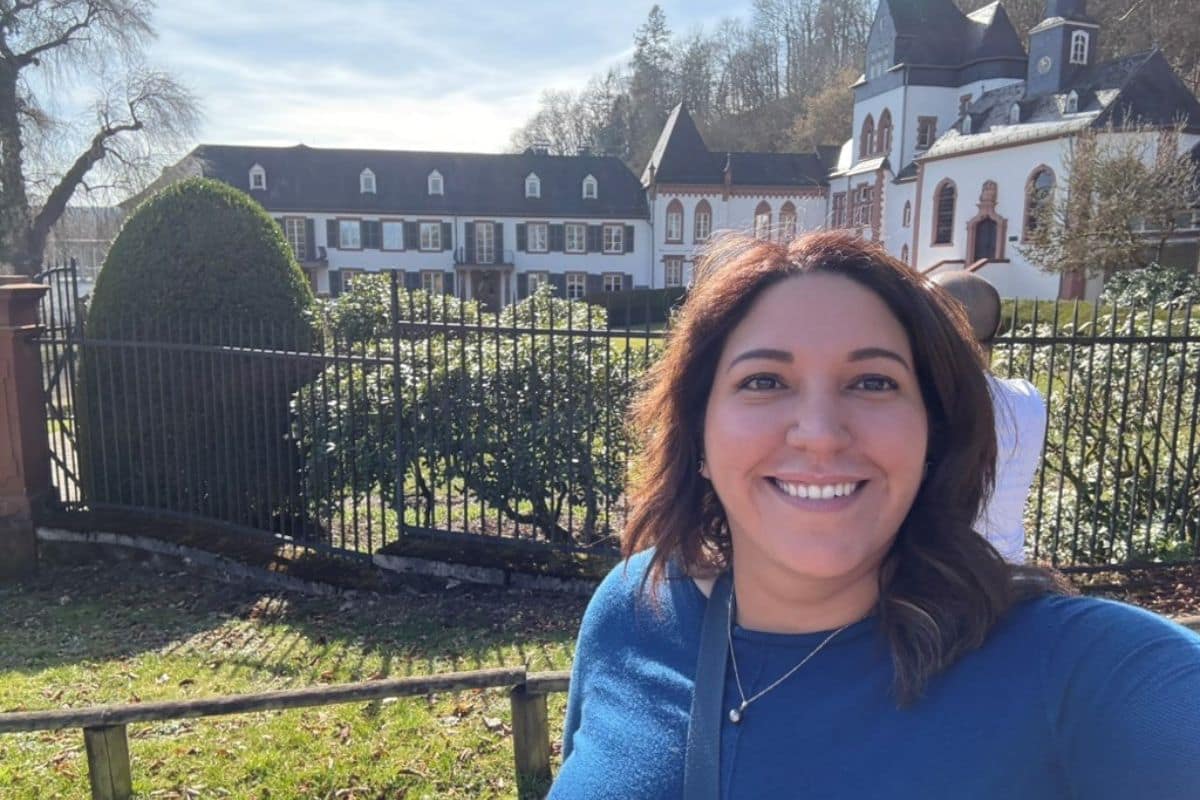Embry-Riddle Professor Joins Industry, Government Leaders to Discuss Future of Cybersecurity

At a centuries-old German castle, more than 40 space industry professionals from around the world gathered to explore one of the most pressing challenges of the modern era: safeguarding current and future space systems against vulnerabilities.
Among the selected experts at the event, titled “Guardians of the Galaxy: Protecting Space Systems From Cyber Threats,” was Embry-Riddle Aeronautical University’s Rosa Szurgot, an assistant professor in the Cyber Intelligence and Security Department who has expertise in aerospace cybersecurity and a vision for the future of quantum-secure deep-space networks.
Her participation in the weeklong international seminar included a presentation titled “Exploring the Future of Deep-Space Quantum Networks.”
Hosted at Schloss Dagstuhl – Leibniz Center for Informatics, a renowned retreat for computer science thought leaders, the seminar, held in March, brought together researchers, engineers, space agency representatives and military officials from across Europe, the U.S., Canada and Australia.
“This wasn’t a conference with hundreds of people,” Szurgot explained. “There were just 42 of us. There was synergy and organic collaboration while we were all living in a secluded castle for a week. This was a gateway into the collaboration that we were going to develop.”
Conference participants included representatives from Cornell University, NASA, the European Space Agency (ESA), The Aerospace Corporation and NATO. The setting created space for meaningful collaboration that could re-imagine what space cybersecurity looks like in the decades to come.

The gathering of cybersecurity professionals, including Szurgot, took place in a centuries-old castle in Wadern, Germany. (Photo: Embry-Riddle/Rosa Szurgot)
“With airplanes gaining access to Wi-Fi, driverless cars and the Internet-of-Things (IoT), connectivity and bandwidth speeds are going to slow down,” Szurgot said. “Internet providers will slowly transition when 6G comes around. The beauty of it is, we’re going to rely on deep space networks and satellites that will allow for that to happen.”
Szurgot’s invitation to the seminar came after she received a grant to support her doctoral research and established a mentorship connection with Dr. Gregory Falco, an assistant professor at Cornell University and a prominent expert in space cybersecurity. Falco also organized the week-long retreat in Germany.
“Professor Szurgot’s enthusiastic participation in our small-group discussions brought forward-thinking concepts, grounded in practical operational limitations of the industry,” said Falco. “This was clearly reflective of Embry-Riddle's history as an industry-leading institution for practical education in aerospace engineering.”
During the seminar, Szurgot was one of only 10 participants selected to give a formal presentation in her area of study. Szurgot’s contributions outlined how quantum entanglement could redefine cybersecurity for space-based communications and pave the way for the future of 6G connectivity.
“Traditional networks rely on binary — ones and zeroes,” she explained. “Quantum networks use qubits, where states can exist simultaneously. That lets us harness quantum mechanics to create a fundamentally more secure system — one that could power everything from autonomous vehicles to healthcare, IoT and artificial intelligence.”
Szurgot emphasized that what set her work at Embry-Riddle apart from other presenters was the university’s practical strength in the hands-on application of classroom concepts.
"At Embry Riddle, we offer experiential learning and application through research engagement, adding a hands-on component to our focused research capabilities and allowing our students to take part in practical applications,” she said. “Simply put, students at Embry-Riddle know how to prevent a computer from being hacked."
She hopes the collaboration won’t be a one-off. Discussions are underway about potentially hosting a future seminar at Embry-Riddle that includes students. Expert forums, such as the one attended by Szurgot, are helping to drive a broader shift in space cybersecurity, which focuses on integrating system security during the design phase rather than treating it as an afterthought.
“Fifty years ago, we built systems that are going to have the most vulnerabilities today,” she said. “But right now, the culture is shifting from that vulnerability stage into actually ‘baking in’ security or cybersecurity into the requirements.”

 Keaton S. Ziem
Keaton S. Ziem